It's fun to be good at stuff.
It's fun to offer a service that helps people.
That's why seeking to master your craft so you can better serve others (or yourself) is a noble aspiration.
The problem, however, is when you have unrealistic expectations, when you keep delaying getting going because you're waiting for things to be 'just right'.
I often see this crippling need for perfection in the healing world.
Healers put off starting their healing 'business' because they are waiting to get better.
They put off teaching because they are not yet 'truly' confident.
They keep telling themselves that one day they'll know they are ready, but that day never seems to come.
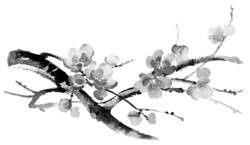
Now, I'm all for dedicating yourself to your craft.
I'm all for working hard to improve your skills.
But what you've got to remember is that true competence, true understanding, only comes from experience.
You can't know you're ready ahead of time.
You can only know you're ready after the fact.
I experienced the same thing when I started teaching Reiki.
At first, I had a lot of doubts.
Would I be a good teacher?
Would the Reiki attunements work?
There was no way of answering these questions short of experimentation.
So I practised on friends. I did what I needed to do to have at least some confidence I could offer a great course – and I risked it!

I advertised my dates. I offered a satisfaction guarantee (in case things went wrong!) – and I held my first course.
Naturally, I was nervous. This was a leap of faith, a leap that might take me anywhere. But I
leapt, the Fates smiled, my students loved the course and, after conducting many more of
them, I did ultimately gain deep confidence in my ability as a teacher – confidence I could
never have got practising my skills at home in the hope that one day I'd be good enough to
teach.
Admittedly, jumping into the action doesn't mean we can't always improve, and I sometimes
tell myself that 'I'm the worst I'll ever be!'
But just because I'll be a better teacher in one year's time doesn't mean I should deprive the world of what I can teach it today.
No, it just means it's great times today and even better times tomorrow!
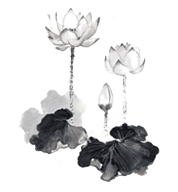
The crippling need for perfection is also readily seen outside the healing world.
Should a writer wait until he feels 'ready' to write a novel before starting one?
Should an artist wait until she feels 'ready' to hold an exhibition before holding one?
Should a musician wait until he feels 'ready' to perform in public before putting on a show?
A good way to look at these questions is to think long-term.
We often worry we will 'fail', but perhaps what really matters is to build a skill set to ensure we keep improving, to ensure there will be a next time – a next time that is even better than the one before it.
Because we can always write another book. We can always hold another exhibition. We can always put on another concert.
And we will always always always learn from our previous experiences.

So everything we do is built on the back of whatever comes before it – and each less than perfect result takes us one step closer to 'perfection'.
We learn by doing, but to learn we have to do!
It's like getting a degree at uni so we can find a job in the workforce.
How often does the degree really give us the relevant skills?
No, the degree proves we're willing learners, but most learning takes place on the job.
So if you are a perfectionist, my advice is to get over it!
If you wait for things to be 'just right', then you might be waiting a long long time.
Yes, the closest you'll come to perfection is after you've got in and dirty, after you've learned through action.
So jump in, sink your boots into the earth and get moving.
That is the only way to the mountaintop.







Humans suffer from an unfortunate condition: we crave stability – and yet grow bored when we
have it!
Worse still, when we lose stability (a secure job, the constant affection of a loved one, our
regular feelings of wellbeing, whatever…), we can easily panic.
In moments like these, we spend our time daydreaming of how good things would be if we only
didn't have to worry about 'X' (insert relevant item), if we could always just be 'Y'
(insert relevant mood) – all the time forgetting that the moment we have these things for
any consistent length of time we begin to want more, begin to lament how inadequate such
things ultimately are!
Given this, it is perhaps not surprising that the discipline of Reiki also suffers from such
frustrations.
The moment we feel that we are plateauing – even at a high level – we grow dissatisfied, and
the moment our Reiki drops off we are tempted to panic.
That is when people write in to tell me how they can't feel as much energy as they once did,
how they feel less settled than before, how this that and the other thing.
But fluctuating energy is nothing to worry about.
Things will always change. It's built into the fabric of life. It's the way things are.
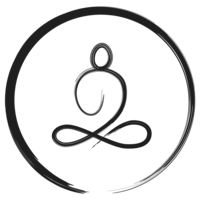
Think of the four seasons.
Think of how we age.
Think of the vegetables in your fridge that are right now growing old and mushy.
Think of – well, you get the drift, and you've probably heard it said many times before.
So the question therefore is: Why should Reiki be an exception?
Why should Reiki be the one thing in life that remains constant?
Understanding this point is a relief, because it frees us from obsessing over the temporary
fluctuations in our practice.
Yes, some days will be great and others not so great; but if we know this in advance, we can
at least relax about the process.
A bad day doesn't mean our Reiki has irretrievably fallen into the Scheissenhausen.
Rather, it's just following the ebb and flow of everything in life.
Perhaps our system is just doing a bit of processing; perhaps the clients we worked on today
are less receptive; perhaps we're working through some really deep issues that are keeping
us energetically numb.
So many things could be influencing our Reiki results and many of them actually indicate that
our practice is progressing, indicate that we are doing deeper and deeper work.

An excellent way to stop worrying about your Reiki ups and downs is to evaluate your progress
by using a moving average.
In other words, instead of judging yourself by individual results – or a small group of
results – see your practice from a broader perspective (e.g., the average result over, say,
the last 30 days).
Think of the Australian dollar. It might be on an upward trend, but on any given day it can
easily drop a cent or so.
Depicted on a graph, the dollar might zigzag all over the place, but over time it will
nevertheless move higher.
So do your best to practise Reiki without worrying about results, because the more you focus
on them, the more you'll get in your own way.
Just concentrate on the fundamentals (i.e., the five pillars – or
diamonds – of the Reiki system), practise regularly, and over time your Reiki will definitely
improve.
Think of it like meditation. Some days are amazing. Others less good. But just because you
have a bad meditation day doesn't mean you are no longer any good at meditation, it just
happens sometimes.
So keep working away – and learn to accept the bad days along with the good. Because bad days
are most likely just a reminder that healthy energetic clearing is taking place.
And once this clearing is out of the way – ooh la la! – your Reiki razzle-dazzle will return with increased powers!
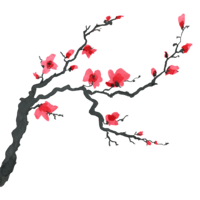





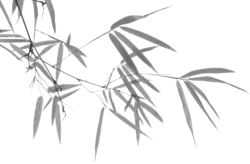
Have you ever been into a New Age crystal/bookstore and found the service chillier than a midwinter arctic breeze?
Ever found yourself on a ‘spiritual’ retreat somewhere and noticed that the participants were about as loving as a pit viper with a fang ache?
I have.
As a case in point, I remember once visiting a friend on Ko Pha Ngan (Thailand) who was attending a yoga retreat. It was an exquisite place. The skies were blue, the seas clear, the weather warm — and no one had anything to worry about but their yoga.
Should be one big, happy smilefest, right?
In actual fact, no matter how much I coaxed and cajoled the aspiring yogis, the best I could get from many of them was a reluctant nod in my direction.
I kid you not.
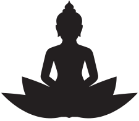
There was one Scandinavian guy in particular who, no matter how many times I flashed my biggest, fattest, friendliest smile, never did more than frown back.
Crazy, right?
I mean, we were on a beautiful tropical island. We had no work, no stress, no nuttin to worry about, but this guy – and many others there – could barely break into a smile.
Now, this yoga community might have been on the misery pill from too much harsh practice – granted – but although an extreme example, I wouldn’t say it’s an isolated case.
I suspect that some people are so serious about their spiritual practice that they don’t want to either get ‘distracted’ or ‘contaminated’ by those ‘less evolved’ than them.
As a result, they try to stay clear of them so they can live in their own hermetically sealed, ‘pure’ little world.
Just speculating, mind you; but you may, from time to time, have had similar experiences.
Of course, there is also a lot of love in spiritual communities — don’t get me wrong — but I think that anyone who is ‘on the path’ needs to be careful not to become so absorbed with what they perceive as ‘inner growth’ that they end up becoming the very people they are trying to outgrow (isolated, closed-hearted, sombre, gloom-pots – to name just a few possibilities).

In my Reiki classes, I often talk about an experiment conducted by a group of psychotherapists and Joe Schmoes (regular people who had no formal training in anything).
In the experiment, they assigned each therapist and Joe Schmo a ‘client’ in a bid to determine whether they could find a common denominator for healing success.
The result?
A single common denominator: empathy.
Yep, that was it.
The study found that it was not the learning or education level of the therapist that led to
noticeably increased chances of success. It wasn’t the kind of therapist they were. It
didn’t even matter whether they were real therapists or Joe Schmoes. The only real indicator
of more probable success was the degree of empathy the ‘therapists’ had.
More empathy = more success. That was the simple formula.
So if you’d like to give your healing a boost, give it the boost of empathy. Seek it. Cultivate it. And learn to open your heart.
Because with an open heart, you will not only be able to more fully connect to those you heal, but they, in turn, will be able to more fully open up to you – something which will increase empathy and connection all around.
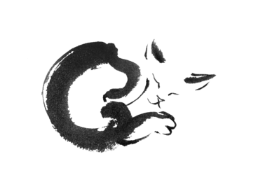
I believe Usui (the founder of Reiki) recognized the importance of empathy and an open heart when he included ‘For today only: show compassion to yourself and others’ as the 5th Reiki precept.
The problem I have with this precept, however, is the word ‘compassion’. Now, possibly the problem is one of translation but, in English, the word ‘compassion’ comes from ‘com’ (i.e. ‘with’) and ‘pati’ (i.e. ‘to suffer’). So it literally means you are sharing someone’s suffering.
This is fine as far as it goes; but I’d prefer to share something a little more upbeat, like ‘love’, ‘joy’ or ‘bliss’.
Or, if someone is suffering, I’d prefer to try to uplift them with my joy or love, rather than just suffer – or sympathize - with them!
For today only: I will open my heart to the world and everything in it.
Or, if that sounds a little too scary for you:
For today only: I will love the world and everything in it.
I encourage you to say both the traditional version of the precept and either of my two proposed versions and feel which one resonates best with you, feel which one uplifts you and changes your energetic state.
My suspicion is that it won’t be the one involving suffering!
Whatever you decide, cultivate empathy, keep an open heart, enjoy your healing and always, always, have fun!








I'd like you to imagine you're a billionaire eating at one of the finest restaurants in town. Tapas, soups, the choicest cut meats, chocolate mousse – whatever you want, you can have it cooked to perfection and placed in front of you.
This is what you get for being a billionaire, and it's something you enjoy every night with few exceptions.
Now imagine a different scenario: you're a peasant going through tough times – a peasant forced to live on rice and weevils, day after day after day. You have enough to survive (heck, the weevils even provide you with a touch of protein!), but the rice you eat, well, the most flavorsome thing about it is the pinch of salt you sprinkle on top.
So it's rice, day after day, month after month until one day, as if by miracle, a rich man walks by, takes pity on you, and orders his servants to fetch you a large roast potato with melted butter and cheese.
You take the potato. You bite into it. Butter and cheese melt in your mouth. Flavour dances on your tongue…
And my question is this: who enjoys his meal most? The billionaire eating his 5-star food? Or the peasant munching on his potato?

Or imagine another pair, this time two singers. One singer is world famous and has signed many multi-million-dollar record deals. The other has never had a record deal and makes a living washing dishes part-time in a restaurant and singing on weekends in a pub.
The world-famous singer gets news that she has just received a new million dollar record deal, the impoverished singer news that she has just been offered her first record deal worth $10,000.
Who is happier to receive the record deal? The rich singer or the poor singer?
These hypothetical scenarios make me think back to the days I used to play serious competition chess. Early on, when I was no good, I'd want to jump and shout for joy each time I beat a rank beginner. Later on, when I'd developed my skills, I often felt only mild satisfaction even when I beat a good player.
Sounds crazy, but in some area of your life you have probably experienced a similar thing: the higher you rise, the harder it is to celebrate the things you used to delight in.
So what's going on? Why does our pleasure button get so easily jaded? And what actually makes us happy?



From the previous examples, the first idea that springs to mind is that our happiness depends on what we get relative to where we are.
If you only ever get tasteless rice but now have a potato with butter and cheese, you're delighted.
If you are used to five-star banquets, the potato with butter and cheese would hardly delight. In fact, even the five-star food is nothing to get excited about. It is the norm!
But is this 'relative happiness' an objective law?
If you took two people with identical external circumstances, would they feel the same feelings as each other?
And if they felt different things, how much personal control do they have over their feelings?

If we think back to my chess example, it might be more accurate to say that my happiness doesn't depend so much on 'what I get, relative to where I am', but rather 'what I get, relative to what I think I should get'.
So if I'm a terrible player, I don't expect to beat anyone, not even bad players. But if I'm an excellent player, I expect to easily take care of players who are only good.
Perhaps not surprisingly, when I started to play really well, I could even get disappointed if I won a game but played badly!
If I expected to crush an opponent, for instance, but merely beat them after a struggle, then that would really tick me off.
There is a kind of logic to all of this and, again, I'm sure you experience this same phenomenon in your own unique ways.
The question now, however, is whether our expectations are governed by external forces (meaning we have no control over them), or whether we can intentionally craft (or recraft) our expectations both before and – often more importantly – after an event.
Because if much of our happiness depends on 'what we get relative to what we think we should get', then learning to refashion our expectations will go a long way towards influencing how happy we are.
Let's return to chess and imagine a scenario where I – a strong player – lose to a weak player. Given my expectations of a positive result, it would be easy to imagine me getting upset.
But what if I 'reframed' the event in my mind? What if I gave it a 'non-standard' interpretation?
For instance, instead of telling myself that losing to a 'chump' is a disaster, I might tell myself that the 'pleasure is in the battle' and that 'the result is secondary'. I might tell myself that after blundering, I ultimately put up a good struggle even if I still lost.
Couldn't that make me feel better?
Alternatively – if I wanted to feel really bad! – I might tell myself that the only thing that matters is the result and that losing to this 'chump' tells me a lot about my 'inadequacies as a person'. In fact, it most likely means I'm so bad I ought to give up chess altogether!
From all this, it's clear that how I frame (or reframe) an event will go a long way towards determining how happy (or unhappy) it makes me.

Okay, so intentionally reframing events in a positive light sound like a good idea. But it isn't necessarily easy to do.
For starters, we are often so emotionally charged that we just don't want to reframe an event!
I mean, screw being happy, we just want to be furious!
Next, it's all very well to reframe 'challenging event number 1', but that doesn't automatically mean we will reframe 'challenging event number 2'.
I wish I could say I always reframed everything in the best possible way, but I don't.
On a good day, I do. On a bad day, I don't!
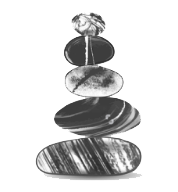
What I do know, however, is that I can increase the percentage of good days by doing a couple of simple things:
First, I can practise reframing small irritations (like burning my toast), so that when more challenging events arise, I'm in the habit of reframing.
Second, I can use 'gratitude' to turbocharge my reframing practice.
Here, instead of simply taking all of my good fortune for granted, I will go about practising being grateful for everything: for having a loaf of bread big enough to burn a couple of pieces and still have more to spare, for the breakfast cereal I could eat instead of the toast, for the oat milk and the soy milk and maple syrup to go on my cereal, for my house, my health, my daughter….
Everyone reading this article could make a pretty extensive list.
The key, however, is to note that the operative word I'm using here is 'practise'.
We've all heard about the merits of an 'attitude of gratitude', but the focus here is to practise filling ourselves with so much gratitude that we will find it almost second nature to reframe any negative events that arise.
After all, if I'm already practised at seeing the good in things (which is a kind of 'reframing'), it will be far easier to do so when times are troubled.
If I never practise, however, it's likely to be a tough ask to reframe while I'm in the throes of strong emotions.
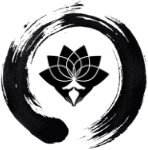
Unless you are a saint, you're going to have days when you get annoyed (upset, whatever) and stay annoyed.
But by consistently practising reframing small things (from good to great and bad to good), you will more often find yourself able to intentionally reshape your experience of the world – even in the face of turbulent emotions.
You'll also find that it can be a lot of fun to intentionally reinterpret (i.e., reframe) events.
Because why be a passive victim when you can wave a 'magic wand' over the experiences of your life?
Why let your default interpretation of events determine how happy you are?
No, if you're smart about it, you'll choose the interpretation that best pleases you and, with that, take charge of your happiness.







'Be Humble' — The Remarkable Power of the 3rd Reiki Precept
In my courses, I often translate the Third Reiki Precept as 'show gratitude'.
Cultivation of gratitude keeps us positive and helps connect us better to those around
us.
It focuses on the good and helps attract more of it to us.
That said, some people translate the third precept as 'Be humble', and that also has its merits.
Here we're not talking about false humility or feeling bad about yourself.
And we're not talking about lowering your head when you should let yourself shine.
Instead, this brand of 'humility' is about being open to learn and receive.
When we are humble, we recognize that there is much we can learn — and we recognize that there are many who can teach us.
This keeps us in a state of 'open-minded freshness'.
We foster an inner state of 'freshness' because our openness to external stimuli (teachings, examples to follow, etc.) helps us to continually grow and evolve.
We are 'open-minded' because we no longer feel we have mastered any area of our life and, as such, are always on the lookout to learn more and develop.
Of course, if we are not growing and developing, if we are not being true to our deep inner nature, Life will always find a way to knock us out of our 'rut'.
To begin with, we are normally given gentle hints and suggestions regarding what we should be doing. If we refuse to listen, however, the suggestions get bigger. If we still don't listen, Life introduces the Stick! This can be painful (think illnesses, separations, sackings and the like), but the Stick does at least get our attention, and it does typically shift us out of our rut.
Think about it. When have you historically made your biggest breakthroughs? When have you had your biggest 'growth spurts'?
Very often after a period of hardship.

Because it was then — and sometimes only then! — that you finally became open to seeing things in a different way, to learning new things. And it was this that got you moving in a more positive direction, this that made all the difference.
But you don't have to wait for the Stick. You can move before you get whacked. You can open your mind to new ideas, possibilities and actions before hardship befalls you. And that is what 'being humble' is all about.
Another attractive feature that learning to 'be humble' has to offer is that it protects us from being judgmental.
Being judgmental is a habit that is easy to acquire but poisonous in its ramifications.
It is a foolproof method for creating discord in our environment, for building mental / emotional barriers between us and others.
This is harmful to our Reiki and harmful to our wellbeing.
It is harmful to our Reiki because it prevents us sharing a deep connection with the people we heal.
It is harmful to our wellbeing because the more we judge others, the more we will disconnect from them and, as a result, the more isolated and lonely we will become.
So remember to be humble.
Don't be small. Don't be insignificant. Don't devalue your inner beauty.
Rather, let your light shine while staying open to the possibility that there is always much to learn.
If you can do that, you will not only start to feel really good about the world around you, you will also evolve at a rapid rate.
Each day you will connect to others, and each day you will learn.
So how about it?
'For today only, be humble.'






If you've been reading my articles for a while, you'll know I love to quote Thoreau's famous line that 'The mass of men lead lives of quiet desperation'.
Why?
Because most people I meet (including students of mine) feel stuck in unsatisfying jobs.
Now, we all probably have several missions in life, but one of mine is to inspire people to get the most out of themselves, to dare to live a bolder and brighter life.
This, in a sense, is the idea behind my novels 'Full Speed' and 'Call of the Silver Cockatoo'. They pose the question:
'What happens when you stop living other people's dreams and have the courage to live your own?'
Reiki, too, addresses this issue with the 4th Precept: 'Be honest in your work'.
For me, this means more than just not cheating anyone in business. It means being honest with yourself. It means finding a job – livelihood – that is in harmony with your deepest nature. Because if you don't do that, then you are not being 'honest' with who you are. You are not being true to yourself.
So I am writing today to suggest you take a chance, to encourage you to take a leap.
Be true to who you are.
Fly.
Because sure, you can't ever be certain of the end result. But you can be certain of one thing: if you keep doing what you are currently doing, you'll keep getting the results you're currently getting.
So unless you are happy with these, you've got to try something new.
And that means not waiting for tomorrow to get moving, because the longer you stay in an uninspiring job, the more it will sap your energy, the more you'll get stuck in a rut, and the more difficult it will be to extricate yourself from it!

Imagine you're at Melbourne University. Imagine you're doing a PhD on a scholarship that pays you to study. Imagine you're doing some lecturing and tutoring. Imagine you even enjoy many aspects of academic life.
But then also imagine that deep down you know your path is another one, that deep down you yearn for something that resonates more fully with who you really are.
Well, that was my situation back in 2002. I was doing very nicely in academia but, having meditated for many years, found that my study was no longer satisfying like it once was.
I needed something more.
I needed something to light up my soul.
So I walked out.
I said 'no' to my PhD.
'No' to my scholarship.
'No' even to the opportunity of deferring my scholarship for up to a year.
Instead, I made a clean break and burnt my bridges.
I did this because I knew my path was something different and didn't want to be tempted.
I didn't want to have something to fall back on – as wise as that may have sounded. I wanted to send myself a message that I was committed and that I would do whatever it took to be true to who I was.
So I went against the advice of every single person I knew.
My parents.
My family.
My friends.
My supervisor at uni.
The janitor at uni (okay, I'm making this last bit up!).
Everyone.
Most people told me to just finish my PhD (I was already two years into it).
The minority suggested that it couldn't hurt to keep my options open and defer my place and scholarship for a year just in case I changed my mind.
No one said to do what I did.
It was a decision I had to make alone – on nothing but the strength of my inner voice.

Teaching Reiki required a similar leap of daring.
Having spent a long time travelling to remote parts of the world (India, Thailand, Nepal, etc.), I returned to Australia and could have settled for a regular job. I could probably even have worked my way back into Academia.
Instead, I chose to teach Reiki for a living.
Now, I did have a bit of financial support from a second business that was operating pretty well by itself at the time (maybe 15-25k per year); but that wasn't at all guaranteed, and I was entering a field where most people find it challenging to make a living.
What's more, I had a non-working partner and two kids to look after.
But I jumped anyway. I put my energy and soul into my new business, and things worked.
They worked because I was willing to work consistently. And they worked because I was doing something that was in alignment with who I really was (and am!).
As a result, the Universe said 'Go ahead my friend, I've got you covered.'
Now, I'd be lying if I said it was always easy (my first course had two participants: one who paid $250 and other who was a friend of mine and came for free!); but I never defaulted on my rent, and over time my business has grown and grown.

You might be wondering why more people (maybe even you!) don't take a chance.
The answer is that humans tend to play it safe.
I discovered a fine example of this first-hand many many years ago when I learned to count cards at blackjack and, as a result, spent a bit of time at the casino.
It was a miserable way to earn a living (sitting beside people who are self-destructing in front of your eyes) and not even a particularly profitable one (gone are the days where they use a single deck of cards!); but one thing I did learn was how wimpy most people are.
Yes, wimpy.
Given a choice between taking another card and possibly going bust and 'sitting' in a
situation that would lead to almost certain death, most people chose to sit and die slowly.
From time to time, I'd offer my advice. I'd know with mathematical certainty that I was right. I'd do my best to encourage the best play; but the fear of jumping was almost always too much. It didn't matter what I said, almost everyone simply sat on their hands and waited for the croupier to beat their hand and gather up their chips.
The other reason it is difficult for people to try a new and daring path is that, like with my decision to leave academia, you typically don't get much support from those around you.
In fact, quite the contrary.
Most people advise against anything that even has the faintest whiff of going against the masses.
Why?
Well, let's imagine you do leave the flock and start munching on greener pastures. How does that make the flock feel?
There they are on their barren stretch of land looking over at you who are feasting on fresh, juicy grass and all they can do is either hate themselves for not having the courage to join you or...try to pull you down...or better yet, try to stop you going in the first place so they never have to risk such an event arising!

Okay, I have a confession to make: an Indian palm reader once told me I was a little rash.
Possibly true.
So don't rush out and quit your job having read this article.
Unless you have an alternative means of support, a more prudent method would be to transition over into something you love doing.
First, learn the necessary skills.
Then go part-time.
Then, when business is booming, jump over to full time.
That way you eliminate risk.
Alternatively, you can jump like a maniac. But if you are going to do this, make sure you have the skills needed to make things work – and make sure you are ready to commit.
Before I leapt into Reiki teaching, I had done over ten years of serious meditation, done untold hours of Reiki practice, learned to build websites, learned to write essays and also had some important business experience.
In other words, I had the skills to make it work.

Whatever you choose to do, be brave and aim high.
Don't settle for a life without passion.
Don't settle for a job that doesn't inspire you.
Instead, listen to your heart, put a plan in place – and then make it happen.
(The – ahem – disclaimer: Please don't do anything crazy after reading this article. Be bold, yes; but be strategic. I am not a professional consultant of any variety. So my words are spoken as a friend, not an advisor. Any decision you make is 100% your responsibility.)

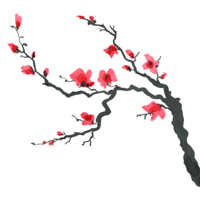





You get a lot of wildly contrasting views about Reiki.
Speak to some people and it's a magic cure-all. Speak to others and it's little better than snake oil.
So what is the truth?
What can clients realistically expect to get from a Reiki session? And what expectations should Reiki healers have when working with clients?
Today's article examines these questions in an attempt to give a balanced view – a view backed by experience not fancy.
Before I get to the meat of the article, however, I have to make a brief journey down Disclaimer Lane.
And in Disclaimer Lane (happily sponsored and enforced by the traditional medical community), you need to be told loud and clear that I'm not making any scientific claims about Reiki in this article. You also need to be told not to stop taking any medicine or stop doing any other such things recommended by your doctor because you read this article. You also need to know that I am not a medical practitioner, so am not giving you professional advice. So if you try anything after reading this article, it is at your own risk.
In fact, to cover myself nicely, I'd like you to read this entire piece as a work of fiction.
Got it?
Great. Then let's proceed…

In my fictional little universe, many Reiki-related frustrations are caused because people expect the same result for different conditions.
This is crazy and you'd never go to a Western (i.e. allopathic) doctor and expect someone suffering from cancer to heal as rapidly as someone suffering from a cold, but there you have it! People often expect Reiki miracles. They want one session to undo years of ill health or psychological / emotional pain.
The truth, however, is that while Reiki will tend to work rapidly on acute issues (like the flu and headaches), chronic conditions almost always need lots of work and only heal incrementally, over time – if they heal at all!
Yes, sometimes you get what I call 'Reiki miracles', those times when someone has a single session for a serious medical condition and then, seemingly as a result of the session, makes a speedy and full recovery. But these Reiki miracles are definitely the exception, not the norm. So to expect one to happen to you is a bit like expecting to win the lottery. You might, but don't bank on it.
It's funny because the most well-documented case of healing in Reiki history is actually the healing of Mrs Takata, the founder of Western Reiki.
In the 1930s, she was suffering a multitude of severe health conditions that led her to a Reiki clinic in Japan run by Dr Hayashi, one of Mikao Usui's better-known students (for those of you who don't know, Mikao Usui was the founder of Reiki).
According to reports, she received Reiki sessions there twice daily for four months before making a full recovery.

For Mrs Takata, this was close to a miracle, but it was certainly no instantly working 'magic pill' – and here we're talking about Dr Hayashi's clinic in Japan!
Speaking personally, I had a similar – albeit far milder – experience of Reiki's ability to heal over time.
For many years (back in the day!), I needed to wear glasses. In fact, when I got my driving licence, I was legally forced to wear my glasses every time I drove.
Then I learned Reiki. Then my eyes got better. Then I had them retested…
And now I am legally free to drive without my glasses!
But the truth is it didn't happen overnight.
Sure, I did what everyone typically does after learning Reiki. I applied myself to my most frustrating health condition and worked on it like crazy.
I zapped my eyes several hours a day for a full week after getting my level 1 but, sad to say, my eyes didn't improve.
Dejected, I then gave up on my eyes and just gave myself daily full-body Reiki because I enjoyed.

After that, the results happened bit by bit over the period of a year or so. Incrementally, almost without me noticing it, my eyes just improved until I regained 20/20 vision.
A skeptic might, of course, ask whether I can be certain it was the Reiki that fixed my eyes and to that the answer is, well, no. But the 'coincidence' of Reiki + eyes getting better certainly gets my attention!
What's more, I've seen so many amazing things occur after people have learned Reiki.
Weight issues, depression, anxiety, eczema, asthma, low energy, stress, Bell's palsy – I've seen these conditions (and many, many more) either disappear entirely or dramatically improve.
Could all or some of these have been pure coincidence?
Maybe. I doubt many are, but I can't scientifically prove anything.
All I can say is that in my experience even chronic conditions – including the ones the traditional medical community often says you can do nothing about – do 'coincidentally' get better after people start to practise consistently with Reiki.
As said, it is seldom a magic pill, and chronic conditions almost always take time. But, hey, given the choice of a condition never improving and a condition improving over time, what would you pick?

Whatever the skeptics might say, healers all around the world will testify to the amazing healing powers of Reiki – and not just for emotional / psychological conditions, but also for physical ones.
Acute conditions can very often see huge improvements after only one or two sessions. Chronic conditions tend to take much longer and improve incrementally over a period of months.
Does this mean that even in my fictional universe Reiki can 'cure' anything?
Not at all.

I've taught Reiki to at least two cancer patients who have ultimately died from their condition (I will note, however, that both were also receiving traditional Western medical support – like chemo – and that proved no magic pill either!).
What I will say, though, is that both of these men experienced the most amazing emotional shifts as the result of the Reiki (at least, that is what they said).
So Reiki did benefit them, it just didn't heal them of cancer.
And that, of course, might be exactly as it was meant to be.
Who can say what someone's destiny is? Who can say what their life path is? Who, ultimately, knows what their soul wants?
Whatever the case, my belief regarding Reiki is that it will always do some good, it's just that the good might be something different from what we want.
As the Rolling Stones said:
You can't always get what you want
But if you try sometimes well you might find
You get what you need.






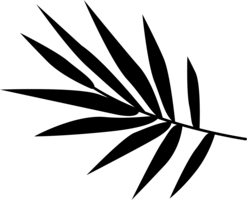
Sign up for our weekly Reiki newsletter and receive '18 things you need to know about Reiki' for free.
If you're looking to take a Reiki course, you need to read this ebook first!
Learn the critical mistakes prospective students make. Ensure you find the course that best suits your needs.



© 2022 Om Reiki Center. All Rights Reserved.